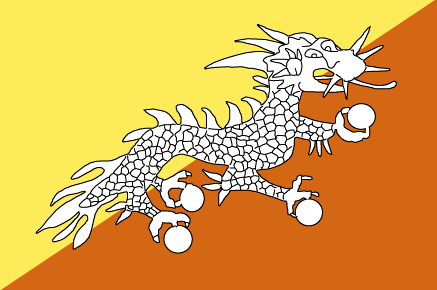At the meeting on “Happiness and Well-being: Defining a New Economic Paradigm,” convened by the Government of Bhutan, participants heard presentations regarding the linkage between sustainable development and happiness and well-being.
 2 April 2012: Convened by the Government of Bhutan and held at UN Headquarters in New York, the meeting “Happiness and Well-being: Defining a New Economic Paradigm” brought together hundreds of representatives from governments, religious organizations, academia and civil society.
2 April 2012: Convened by the Government of Bhutan and held at UN Headquarters in New York, the meeting “Happiness and Well-being: Defining a New Economic Paradigm” brought together hundreds of representatives from governments, religious organizations, academia and civil society.
In the early 1970s, Bhutan introduced a new measurement of national prosperity, focusing on people’s well-being rather than economic productivity. In recent years, there has been growing interest in this concept of “gross national happiness.” The UN General Assembly adopted a resolution in 2011 noting that the Gross Domestic Product (GDP) indicator does not adequately reflect the happiness and well-being of people in a country. During the meeting, UN Secretary-General Ban Ki-moon stressed that sustainable development is intricately linked to happiness and well-being, underlining that the UN Conference on Sustainable Development (UNCSD, or Rio+20) will need to provide an outcome that reflects this. General Assembly President Nassir Abdulaziz Al-Nasser stressed the need for a “new, creative guiding vision for sustainability and our future,” one that can bring “a more inclusive, equitable and balanced approach that will promote sustainability, eradicate poverty and enhance well-being and happiness.”
The discussion was chaired by Jacqueline McGlade, Executive Director of the European Environment Agency (EEA). “The economic crisis, accelerating environmental degradation and growing discontent around the world all point to one conclusion – GDP as the sole measure of success has reached the end of the road,” she said. Several sessions over the course of the meeting aimed to define the different elements of happiness, outlining a vision which Nobel Laureate Joseph Stiglitz called “a new economic paradigm.” In addition to psychological and physical well-being, panelists discussed elements of ecological sustainability, efficient resource use and equitable distribution of resources. Discussions will feed into Rio+20, where governments will debate a series of sustainable development goals (SDGs) setting targets for diverse criteria including resource use, renewable energy and food security. [UN News Release][UNGA-66 President’s Statement][EEA Press Release][Sustainable Development Policy and Practice post on Secretary-General’s Statement]